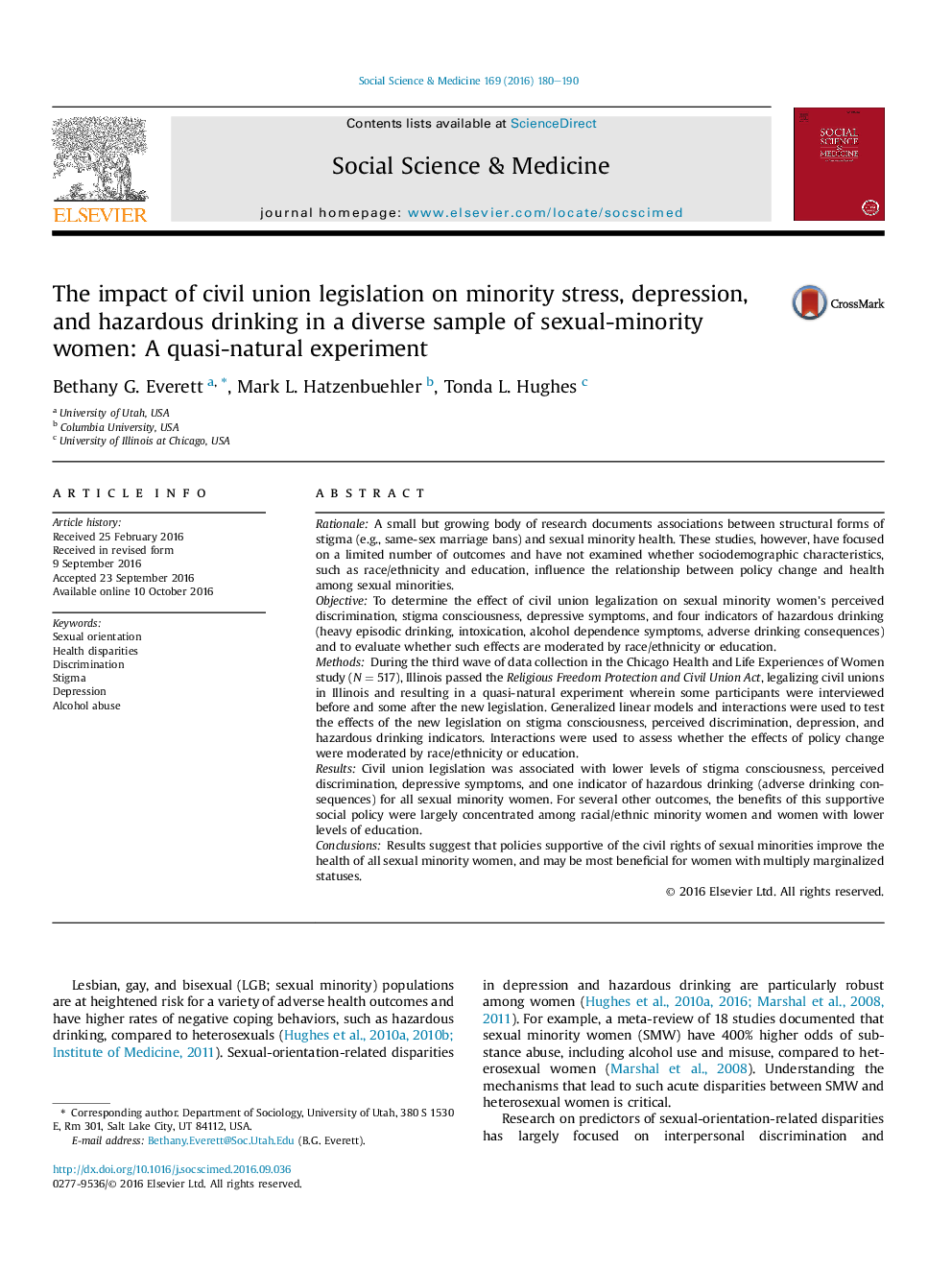| Article ID | Journal | Published Year | Pages | File Type |
|---|---|---|---|---|
| 5046900 | Social Science & Medicine | 2016 | 11 Pages |
â¢We examine effects of civil union legislation on sexual minority women's health.â¢Policy change was linked to lower levels of stigma, discrimination, and depression.â¢Policy change was also associated with lower levels of hazardous drinking.â¢Health benefits were concentrated among women of color and with lower education.â¢Anti-discriminatory policies can improve the health of stigmatized populations.
RationaleA small but growing body of research documents associations between structural forms of stigma (e.g., same-sex marriage bans) and sexual minority health. These studies, however, have focused on a limited number of outcomes and have not examined whether sociodemographic characteristics, such as race/ethnicity and education, influence the relationship between policy change and health among sexual minorities.ObjectiveTo determine the effect of civil union legalization on sexual minority women's perceived discrimination, stigma consciousness, depressive symptoms, and four indicators of hazardous drinking (heavy episodic drinking, intoxication, alcohol dependence symptoms, adverse drinking consequences) and to evaluate whether such effects are moderated by race/ethnicity or education.MethodsDuring the third wave of data collection in the Chicago Health and Life Experiences of Women study (NÂ =Â 517), Illinois passed the Religious Freedom Protection and Civil Union Act, legalizing civil unions in Illinois and resulting in a quasi-natural experiment wherein some participants were interviewed before and some after the new legislation. Generalized linear models and interactions were used to test the effects of the new legislation on stigma consciousness, perceived discrimination, depression, and hazardous drinking indicators. Interactions were used to assess whether the effects of policy change were moderated by race/ethnicity or education.ResultsCivil union legislation was associated with lower levels of stigma consciousness, perceived discrimination, depressive symptoms, and one indicator of hazardous drinking (adverse drinking consequences) for all sexual minority women. For several other outcomes, the benefits of this supportive social policy were largely concentrated among racial/ethnic minority women and women with lower levels of education.ConclusionsResults suggest that policies supportive of the civil rights of sexual minorities improve the health of all sexual minority women, and may be most beneficial for women with multiply marginalized statuses.
